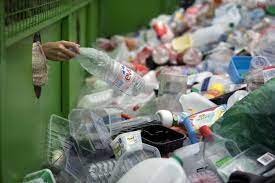Plastics recycling has come about like a important solution to mitigate the environment effect of plastic squander. Here is a comprehensive research in the dynamics surrounding plastic recycling:
1. Economical Things to consider:
Industry Desire: The requirement for reprocessed plastics varies based on aspects for example product costs and client personal preferences.
Recycling Business economics: The business economics of plastic recycling be determined by factors such as collection costs, processing expenses, and market costs for re-cycled resources.
2. Global Styles:
Legislation: Several countries have implemented restrictions to advertise plastic recycling, such as extended maker accountability (EPR) laws and plastic bans.
Worldwide Industry: The global trade of re-cycled plastics influences recycling market segments and offer stores worldwide.
3. Engineering Advancements:
Automation: Programmed searching and processing technologies boost the performance and scalability of plastic recycling procedures.
Material Recuperation Facilities (MRFs): MRFs make use of advanced gear to individual recyclable supplies efficiently.
4. Ecological Affect Assessment:
Life Pattern Analysis: Assessing the ecological footprint of plastic recycling involves studying the entire lifestyle pattern of plastics, from creation to removal.
Co2 Footprint: Recycling decreases garden greenhouse gasoline pollutants when compared with manufacturing virgin plastics.
5. Rounded Economic system Projects:
Sealed-Loop Solutions: Implementing closed-loop recycling methods fosters a circular economic system where resources are continuously recycled and reused.
Product Style: Developing items for recyclability and adding reprocessed components into developing processes promotes circularity.
6. General public Consciousness and Education and learning:
Outreach Programs: Educational initiatives elevate consciousness about the importance of plastic recycling and suitable squander control methods.
Personality Alter: Inspiring individuals and organizations to follow recycling behavior and help environmentally friendly campaigns is important for driving a vehicle transform.
7. Social Effects:
Work Production: The increase in the recycling market produces job opportunities in collection, digesting, and producing.
Local community Engagement: Engaging residential areas in recycling courses encourages a sense of environment accountability and collective action.
8. Challenges and Prospects:
Contamination: Contaminants in recycling streams pose problems on the good quality and marketability of re-cycled plastics.
Development: Purchasing study and development can open options for technological inventions and process improvements in plastic recycling.
To sum it up, plastics recycling can be a multifaceted effort affected by monetary, technical, ecological, and societal aspects. By dealing with these dynamics thoroughly, we can improve towards a much more eco friendly upcoming with decreased plastic toxins and improved resource efficiency.
